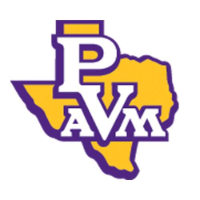What do they do?
Guard inmates in penal or rehabilitative institutions in accordance with established regulations and procedures. May guard prisoners in transit between jail, courtroom, prison, or other point. Includes deputy sheriffs and police who spend the majority of their time guarding prisoners in correctional institutions.
Also known as:
Booking Officer, Civilian Jail Officer, Community Services Officer (CSO), Confinement Officer, Correctional Officer, Corrections Corporal, Corrections Officer (CO), Corrections Specialist, Deputy, Deputy Jailer, Detention Deputy, Detention Officer, Detention Specialist, Jail Officer, Jailer, Jailor, Juvenile Corrections Officer, Police Detention Attendant, Station Jailer
-
-1.8%
Change
Ranks #49 in job growth rate1,040Job Openings
Ranks #9 in net job growth
Looking for colleges that offer a specific major? Use the College Match Tool to find your best-matched schools and discover your estimated Net Price!
- Some college, no degree (34%)
- High school diploma equivalent (30%)
- Bachelor's degree (17%)
- Associate's degree (14%)
- Master's degree (2%)
- Less than high school diploma (2%)
- Doctorate or Professional Degree (<1%)
People in this career often have these skills:
- Active Listening - Giving full attention to what other people are saying, taking time to understand the points being made, asking questions as appropriate, and not interrupting at inappropriate times.
- Monitoring - Monitoring/Assessing performance of yourself, other individuals, or organizations to make improvements or take corrective action.
- Social Perceptiveness - Being aware of others' reactions and understanding why they react as they do.
- Speaking - Talking to others to convey information effectively.
- Critical Thinking - Using logic and reasoning to identify the strengths and weaknesses of alternative solutions, conclusions, or approaches to problems.
- Reading Comprehension - Understanding written sentences and paragraphs in work-related documents.
- Coordination - Adjusting actions in relation to others' actions.
- Persuasion - Persuading others to change their minds or behavior.
People in this career often know a lot about:
- Public Safety and Security - Knowledge of relevant equipment, policies, procedures, and strategies to promote effective local, state, or national security operations for the protection of people, data, property, and institutions.
- English Language - Knowledge of the structure and content of the English language including the meaning and spelling of words, rules of composition, and grammar.
- Law and Government - Knowledge of laws, legal codes, court procedures, precedents, government regulations, executive orders, agency rules, and the democratic political process.
- Customer and Personal Service - Knowledge of principles and processes for providing customer and personal services. This includes customer needs assessment, meeting quality standards for services, and evaluation of customer satisfaction.
- Administration and Management - Knowledge of business and management principles involved in strategic planning, resource allocation, human resources modeling, leadership technique, production methods, and coordination of people and resources.
- Computers and Electronics - Knowledge of circuit boards, processors, chips, electronic equipment, and computer hardware and software, including applications and programming.
- Psychology - Knowledge of human behavior and performance; individual differences in ability, personality, and interests; learning and motivation; psychological research methods; and the assessment and treatment of behavioral and affective disorders.
- Administrative - Knowledge of administrative and office procedures and systems such as word processing, managing files and records, stenography and transcription, designing forms, and workplace terminology.
- Education and Training - Knowledge of principles and methods for curriculum and training design, teaching and instruction for individuals and groups, and the measurement of training effects.
People in this career often have talent in:
- Oral Comprehension - The ability to listen to and understand information and ideas presented through spoken words and sentences.
- Oral Expression - The ability to communicate information and ideas in speaking so others will understand.
- Problem Sensitivity - The ability to tell when something is wrong or is likely to go wrong. It does not involve solving the problem, only recognizing that there is a problem.
- Deductive Reasoning - The ability to apply general rules to specific problems to produce answers that make sense.
- Inductive Reasoning - The ability to combine pieces of information to form general rules or conclusions (includes finding a relationship among seemingly unrelated events).
- Speech Clarity - The ability to speak clearly so others can understand you.
- Near Vision - The ability to see details at close range (within a few feet of the observer).
- Speech Recognition - The ability to identify and understand the speech of another person.
- Written Comprehension - The ability to read and understand information and ideas presented in writing.
- Selective Attention - The ability to concentrate on a task over a period of time without being distracted.
People in this career often do these activities:
- Count prison inmates or personnel.
- Inspect equipment to ensure safety or proper functioning.
- Maintain surveillance of individuals or establishments.
- Locate suspicious objects or vehicles.
- Search individuals for illegal or dangerous items.
- Guard facilities.
- Record information about suspects or criminals.
- Inspect cargo to identify potential hazards.
- Apprehend criminal suspects.
- Use weapons or physical force to maintain security.
- Inspect facilities to ensure compliance with fire regulations.
- Inspect facilities to ensure compliance with security or safety regulations.
- Inspect facilities for cleanliness.
- Direct operations of correctional facilities.
- Escort prisoners to courtrooms, prisons, or other facilities.
- Attend training to learn new skills or update knowledge.
- Collect information about clients.
- Resolve interpersonal conflicts.
- Discuss performance, complaints, or violations with supervisors.
- Drive vehicles to transport individuals or equipment.
- Investigate crimes committed within organizations.
- Supervise inmate activities.
- Maintain inventories of materials, equipment, or products.
- Prepare activity or work schedules.
This page includes data from:

 Occupation statistics: USDOL U.S. Bureau of Labor Statistics Occupational Employment Statistics
Occupation statistics: USDOL U.S. Bureau of Labor Statistics Occupational Employment Statistics
 Videos: CareerOneStop, USDOL/ETA and the Minnesota Department of Employment & Economic Development
Videos: CareerOneStop, USDOL/ETA and the Minnesota Department of Employment & Economic Development




